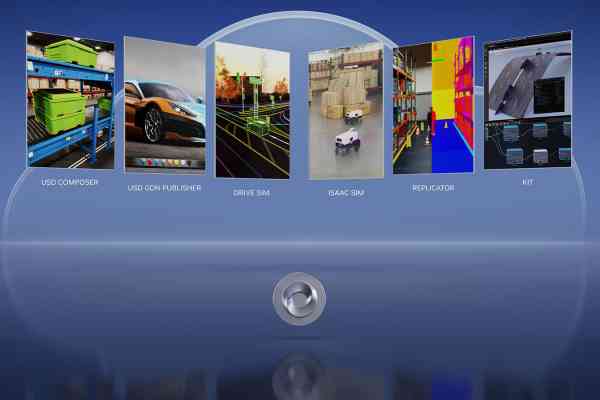November 9th, 2020 | 10:50 CET
BioNTech, Defense Metals, Bayer: Earn money countercyclically
It is complete. After a tense struggle and four days of counting votes, Joe Biden is declared the 46th President of the United States of America. So the Twitter tirades of the defeated Donald Trump should be history. The traces Trump left behind during his four-year reign, however, are likely to keep the government busy for some time to come. Some things, such as the withdrawal from the climate agreement, can be quickly repaired. Biden will carefully weigh up what is "in" and what is "out" on different points of the "America First" program imposed by the predecessor.
time to read: 3 minutes
|
Author:
Stefan Feulner
ISIN:
CA2446331035 , US09075V1026 , DE000BAY0017
Table of contents:
Author
Stefan Feulner
The native Franconian has more than 20 years of stock exchange experience and a broadly diversified network.
He is passionate about analyzing a wide variety of business models and investigating new trends.
Tag cloud
Shares cloud
The USA versus China enters the next round
Trade relations between the two great powers fell to a historic low in the Trump era. In the media, one could read about sanctions against the smartphone manufacturer Huawei or the ban on the Chinese social media platform TikTok. The consequences of the swelling trade dispute, however, affect far more industries, including raw material producers.
Rare earths used as a tool in the trade dispute
In early November, the Chinese government passed a law that allows you to prohibit the export of strategic materials and advanced technology to selected international companies. As a result, the country could take action against a nation or region that abuses export control procedures. This list should include rare earth elements (REE), where China's market share is around 80 percent. Such a ban is likely to have far-reaching consequences at a global level. Rare earth elements are needed for all devices, from the iPhone to the electric vehicle, to the fighter jet.
Alternatives to be sought
To reduce dependence, the US has been trying for years to locate resources around the world, outside of China, and establish partner programs. The Trump administration finally declared a national state of emergency in the mining industry and called for an increase in rare earth minerals.
Signs of life from Canada
The Canadian mineral exploration Company, Defense Metals, meets precisely this need and should be able to benefit from the situation. Founded in 2016, the Company focuses on the acquisition of mineral deposits containing metals and elements used in the production of renewable energy technologies, such as rare earth magnets.
The main focus is on the Wicheeda project in the province of British Columbia. According to the Company, the mineral resources are 4.9 million tonnes at an average grade of 3.02% LREO (light rare earth oxides) and inferred mineral resources are 12.1 million tonnes at an average grade of 2.90% LREO.
Successful financing round
At the end of October, the Canadians completed a private placement of 2,525,000 units for gross proceeds of CAD 505,000. The inflow will allow the Company to work towards a preliminary economic evaluation of the Wicheeda Rare Earth Project. The assessment is due to be completed in the first quarter of 2021. The current market capitalization is only EUR 6.0 million. The topic of rare earths remains hot, especially concerning the excess demand in the electric car industry.
Buying on the ground
After the sometimes heavy price losses of recent weeks, the first insiders dared to take to the floor and bought shares in the pharmaceutical and agricultural giant, Bayer, on a grand scale. In addition to Company director Werner Baumann, two other top managers were spotted on the buy-side. After Baumann and his wife acquired shares with an equivalent value of around EUR 2.45 million, CFO Wolfgang Nickl and Heiko Schipper, who is responsible for the health products business, treated themselves to securities for EUR 154,000 and EUR 309,000 respectively. Although the glyphosate settlement is still pending, this is not a bad sign that the seriously shaken Bayer share price has bottomed out.
Just before the explosion
In a few days, the data of the final clinical study series on the corona vaccine program of the Mainz-based Company, BioNTech, will be available. The technical analysis looks as if this will be a complete success. After the share price plunged and the support zone tested at just under EUR 75.00, the share price moved north again with significant momentum. Currently, the share is trading at USD 92.00, not far from the all-time high of USD 97.26. Thus, the reporting runs almost parallel to the market technique. One success report and the share price marches into the three-digit territory.
Conflict of interest
Pursuant to §85 of the German Securities Trading Act (WpHG), we point out that Apaton Finance GmbH as well as partners, authors or employees of Apaton Finance GmbH (hereinafter referred to as "Relevant Persons") may in the future hold shares or other financial instruments of the mentioned companies or will bet on rising or falling on rising or falling prices and therefore a conflict of interest may arise in the future. conflict of interest may arise in the future. The Relevant Persons reserve the shares or other financial instruments of the company at any time (hereinafter referred to as the company at any time (hereinafter referred to as a "Transaction"). "Transaction"). Transactions may under certain circumstances influence the respective price of the shares or other financial instruments of the of the Company.
Furthermore, Apaton Finance GmbH reserves the right to enter into future relationships with the company or with third parties in relation to reports on the company. with regard to reports on the company, which are published within the scope of the Apaton Finance GmbH as well as in the social media, on partner sites or in e-mails, on partner sites or in e-mails. The above references to existing conflicts of interest apply apply to all types and forms of publication used by Apaton Finance GmbH uses for publications on companies.
Risk notice
Apaton Finance GmbH offers editors, agencies and companies the opportunity to publish commentaries, interviews, summaries, news and etc. on news.financial. These contents serve information for readers and does not constitute a call to action or recommendations, neither explicitly nor implicitly. implicitly, they are to be understood as an assurance of possible price be understood. The contents do not replace individual professional investment advice and do not constitute an offer to sell the share(s) offer to sell the share(s) or other financial instrument(s) in question, nor is it an nor an invitation to buy or sell such.
The content is expressly not a financial analysis, but rather financial analysis, but rather journalistic or advertising texts. Readers or users who make investment decisions or carry out transactions on the basis decisions or transactions on the basis of the information provided here act completely at their own risk. There is no contractual relationship between between Apaton Finance GmbH and its readers or the users of its offers. users of its offers, as our information only refers to the company and not to the company, but not to the investment decision of the reader or user. or user.
The acquisition of financial instruments entails high risks that can lead to the total loss of the capital invested. The information published by Apaton Finance GmbH and its authors are based on careful research on careful research, nevertheless no liability for financial losses financial losses or a content guarantee for topicality, correctness, adequacy and completeness of the contents offered here. contents offered here. Please also note our Terms of use.




